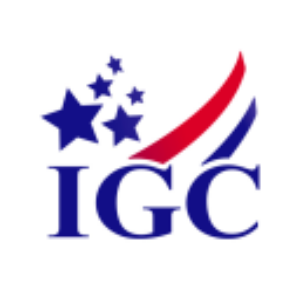IGC Pharma Announces Additional Data Supporting IGC-AD1 as an Alzheimer's Treatment
IGC-AD1 demonstrates the potential to modify tau and improve spatial memory
Data supports the initiation of clinical trials investigating IGC-AD1 as a treatment for Alzheimer's disease
IGC Pharma's findings from preclinical Alzheimer's cell line studies have revealed IGC-AD1's significant impact on tau pathology. The data shows that IGC-AD1 effectively reduced hyperphosphorylation of tau protein, a process strongly associated with the formation of neurofibrillary tangles ("NFT" s), which are linked to cognitive decline. Notably, the combined active pharmaceutical ingredients ("API" s) in IGC-AD1 decreased the ratio of phosphorylated tau to total tau by approximately
In addition, data also shows significant improvements in spatial memory from studies using an Alzheimer's mouse model. The Morris Water Maze ("MWM") tests revealed that mice treated with IGC-AD1 exhibited a
Tau tangles are twisted fibers inside neurons, the brain cells responsible for thinking and memory. In Alzheimer's disease, these tangles cause neurons to die, leading to memory loss and cognitive decline. Along with amyloid plaques, tau tangles are one of the key markers of Alzheimer's, contributing to the progression of the disease.
Ram Mukunda, CEO of IGC Pharma, stated, "The formulation not only targets amyloid plaques, as previously disclosed but may also effectively target tau pathology and improve cognitive function. This positions IGC-AD1 uniquely in the Alzheimer's treatment landscape, with the potential to serve both as a disease-modifying drug and a therapy for specific symptoms like agitation in Alzheimer's.
We hope to position the drug for two large indications: 1) agitation in Alzheimer's and 2) as a disease-modifying anti-amyloid / anti-tangles Alzheimer's treatment. These findings open a significant market opportunity for IGC Pharma, potentially driving substantial value for both patients and shareholders."
IGC-AD1 is currently in a Phase 2 clinical trial that is a multicenter, double-blind, randomized, placebo-controlled study designed to assess the safety and efficacy of IGC-AD1 in treating agitation in dementia due to Alzheimer's. Over 1,000 oral doses have been administered to date, with no dose-limiting adverse events observed, highlighting the safety profile of IGC-AD1. As the Company progresses IGC-AD1 into additional clinical trials, the potential to decrease symptoms such as agitation while also modifying Alzheimer's disease progression could significantly enhance its value proposition in the market.
About IGC Pharma (dba IGC):
IGC Pharma is an AI-powered, clinical-stage biotechnology company focused on developing innovative treatments for Alzheimer's disease and transforming patient care with fast-acting, safe, and effective solutions. Our portfolio includes the TGR family, including TGR-63, which targets amyloid plaques, a hallmark of Alzheimer's. The IGC-C and IGC-M platforms are advancing in preclinical studies, focusing on metabolic disorders, tau proteins, early plaque formation, and multiple disease hallmarks. Our lead therapeutic candidate, IGC-AD1, is a cannabinoid-based treatment currently in a Phase 2 trial for agitation in dementia associated with Alzheimer's (clinicaltrials.gov, NCT05543681). Interim data for IGC-AD1 demonstrated that it has the potential to transform patient care by offering faster-acting and more effective relief compared to traditional medications. Additionally, our AI models are designed to predict potential biomarkers for the early detection of Alzheimer's, optimize clinical trials, and predict receptor affinity, among others. With 28 patent filings and a commitment to innovation, IGC Pharma is dedicated to advancing pharmaceutical treatments and improving the lives of those affected by Alzheimer's and related conditions.
Forward-looking Statements
This press release contains forward-looking statements. These forward-looking statements are based largely on IGC Pharma's expectations and are subject to several risks and uncertainties, certain of which are beyond IGC Pharma's control. Actual results could differ materially from these forward-looking statements as a result of, among other factors, the Company's failure or inability to commercialize one or more of the Company's products or technologies, including the products or formulations described in this release, or failure to obtain regulatory approval for the products or formulations, where required, or government regulations affecting AI or the AI algorithms not working as intended or producing accurate predictions; general economic conditions that are less favorable than expected; the FDA's general position regarding cannabis- and hemp-based products; and other factors, many of which are discussed in IGC Pharma's
View source version on businesswire.com: https://www.businesswire.com/news/home/20240918013665/en/
IMS Investor Relations
Rosalyn Christian / Walter Frank
igc@imsinvestorrelations.com
(203) 972-9200
Source: IGC Pharma, Inc.







